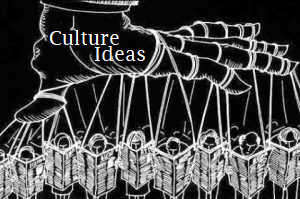
Political economy and morals
The confrontation of these ideas will be present in most of the texts that intend to analyze the world social conjuncture, the decline of the great nations and empires, the return of nationalism and socialism at the beginning of the last century and their main theses are, as explained by Slavoj Zizek: the political economy and the Party of Order (Zizek, 2012, pg. 28), which was the beginning of the polarization that is now worldwide and went beyond patriotic limits.
social conjuncture, the decline of the great nations and empires, the return of nationalism and socialism at the beginning of the last century and their main theses are, as explained by Slavoj Zizek: the political economy and the Party of Order (Zizek, 2012, pg. 28), which was the beginning of the polarization that is now worldwide and went beyond patriotic limits.
His whole discussion is between the “doxa” (only to understand that of the ortho-doxa) of the Marxist Frederic Jameson (Valences of the Dialetic) and the neo-Marxists Michael Hardt and Antonio Negri (Multitude) for whom the evolution of work called immaterial (Marx’s nomenclature for intellectual work) or symbolic work (nomenclature for linguists and semioticians) and which is at bottom what Kant and later Hegel called “subjective”, which is trapped in objective x subjective dualism, even if transcendence is incorrectly used for the subjective, there is nothing supernatural in any of them.
What Marx differs from Zizek points out: “the ‘objective’ determinations of social reality are at the same time ‘subjective’ determinations of thought (determinations of the subjects trapped in this reality) and, at this point of indistinction (where the limits of our thought, their impasses and contradictions, are at the same time the antagonisms of objective social reality itself)…” (Zizek, p. 10), to summarize and make it clearer, in Marx’s view it is the “mode of production”, that is, the way in which material goods are produced that determines subjectivity, thus unites them, but eliminates any “transcendence”.
The important analysis of the precedence of political economy over any morality, which is submitted to it as explained above, makes this field the object of moral and also political relativism, where the ends come to justify the means, even if morally unjust, it matters little, but the analysis that a large part of intellectual subjectivity has become public (I prefer transcendence that is not or even immaterial work, because the fruit in the last instance is always a physical product, even if it is a book or a text), so for this reason the Hardt’s and Negri’s analysis make sense, even if they are all somehow linked to the subjective of Hegel or Kant, and are ultimately footnotes to Plato and Aristotle, as several philosophers have said.
After reviewing several Marxist concepts, such as added value (I remember that in Portugal it is common to use it as a synonym for adding value to products), he sentences the difficulties of communism in our time, such as the reforms in China by Deng Xiao Ping: “ introduce capitalism without the bourgeoisie (as the new ruling class); now, however, Chinese leaders are painfully discovering that capitalism without a stable hierarchy … breeds permanent instability” (Zizek, 2012, p. 21), this was said long before the real estate giant Evergrande went bankrupt, and was taken over by the state. Chinese contracting this crisis.
The author skips the so-called “Cultural Industry” discovered by the Frankfurtian Marxists in contact with the American marketing machine, but does not fail to note the cultural war in post-socialist countries, when he asks himself whether the economy continues to be the great reference for the analysis political and social, in the case of Eastern European countries: “in which the tension between pseudofolk and rock in the field of popular music functioned as a displacement of tension between the conservative nationalist right and the liberal left” (Zizek, p. 33 ), however, the idea “that the cultural struggle is not a secondary phenomenon…” (idem) is folded.
Although he recognizes, quoting Thomas Frank, that there is a “gap between economic interests and moral questions” (p. 36), he treats the theme with irony and outside the cultural question, of which it is an inseparable part.
ZIZEK, Slavoj. (2012). O ano que pensamos perigosamente (The year we dream dangerously). Trans. Rogerio Bettoni. Brazil, São Paulo: Boitempo.









